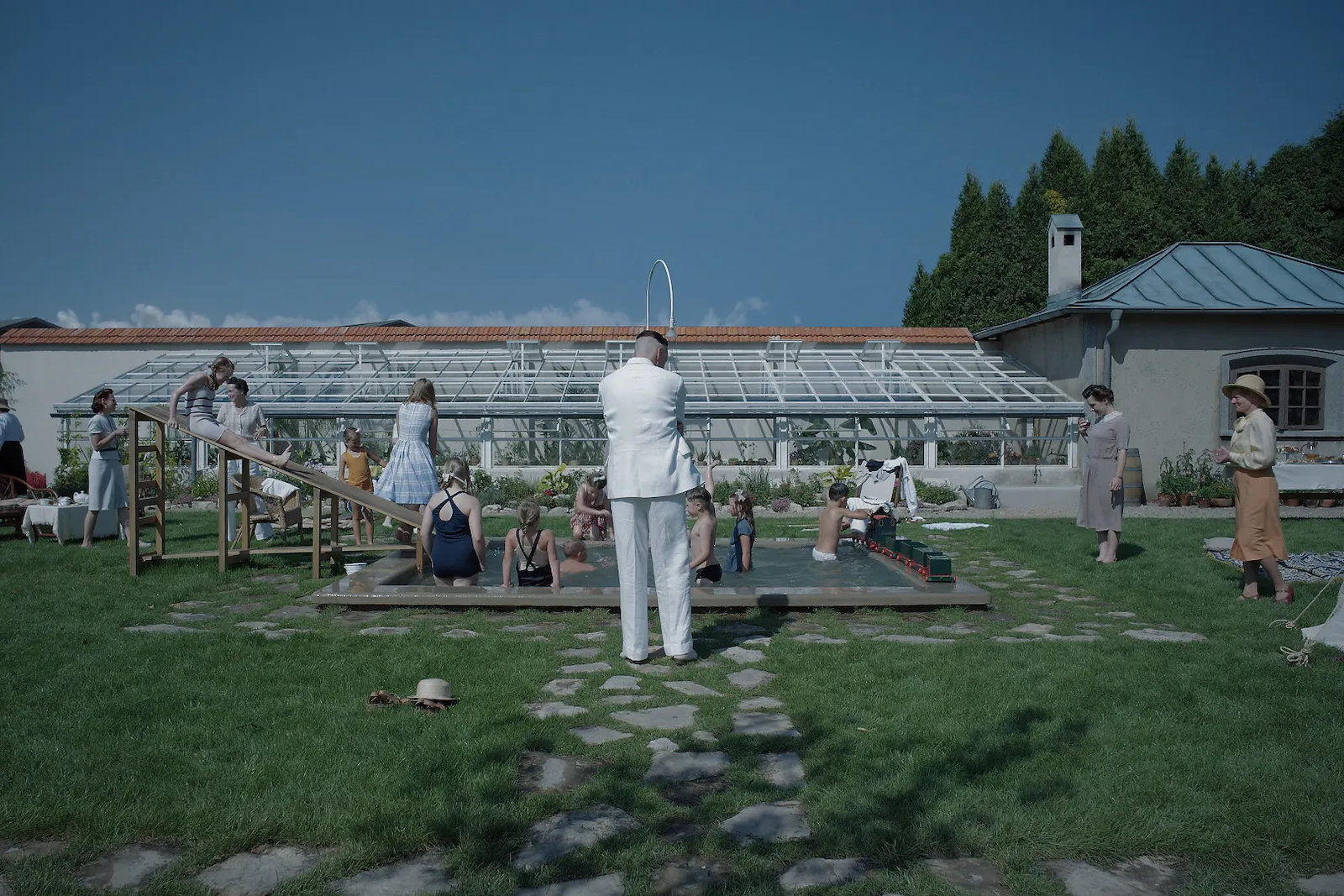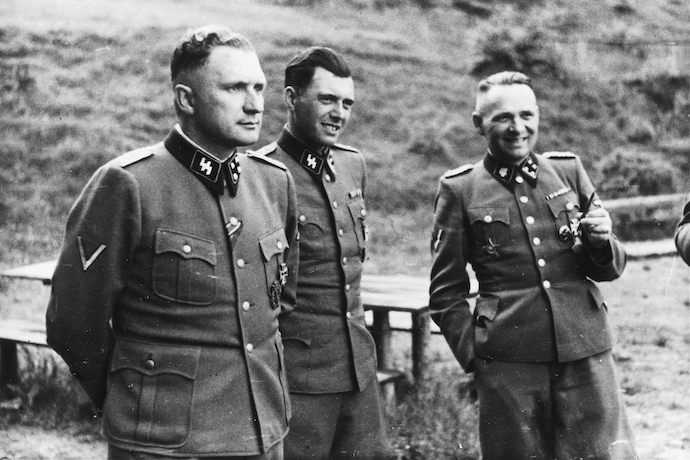
Glazer’s ‘The Zone of Interest’ is a Brilliant but Horrifying Film
I’ve always had an issue with movies that portray the human or “normal” side of Nazis. Of course, we understand these were human beings – many caught in a no-win situation of self-preservation; however, we find it so difficult to accept that decent people could carry out these orders of atrocities. Writer-director Jonathan Glazer (Under the Skin, Sexy Beast, Birth, and numerous music videos) has loosely adapted the screenplay for The Zone of Interest from the 2014 novel by Martin Amis, who passed away the same day the movie premiered at Cannes.
Glazer opens the film with a black screen. It lasts 2-3 minutes but feels longer. He purposefully sets us up to fine-tune our listening skills for his film that is every bit as much about sound as it is about visuals. As the picture comes into focus, we find a family enjoying a day of sun and swimming at a river. When the dad stumbles on something, he immediately gathers up the kids and everyone heads home to bathe.

The man is Rudolf Höss (played by Christian Friedel), a German SS officer, and the commandant of Auschwitz concentration camp in Poland during WWII. He and his wife, Hedwig Höss (Sandra Hüller, who also stars in Anatomy of a Fall, another outstanding film this year) are raising their kids in a beautiful home with a backyard that borders Auschwitz. While their servants clean and cook, Hedwig tends to her lush garden while the kids play in and out of the house. Once I realized this family was living an ordinary life in this extraordinary setting, a knot formed in my stomach; a knot that took a couple of days to subside, and has returned as I write this review.
Background sounds include periodic screams of terror and pain, as well as distant gunshots blending with the sounds of kids chirping and women chatting. When cinematographer Lukasz Zal (Ida, 2014) shoots a certain angle, we see the smokestacks rising above the wall. However, we don’t venture inside the camp gates, even for Rudolf’s birthday when the other Nazi officers pay their respects to him. Hedwig is seen picking through items seized from those slaughtered mere feet from her front door. She takes pride in her nickname, “the Queen of Auschwitz,” even as she readily nabs a luxury coat.
Plot and drama are not big players here. We briefly see Rudolf in meetings with Nazi officials as they brainstorm on methods of improving efficiencies of mass extermination. The closest thing to family drama occurs when Rudolf is promoted to Berlin, and Hedwig refuses to go, claiming “This is our home.” It’s an incredible statement highlighting the mental block (or acceptance?) she has of the proximity to horrific actions, and the fact that evil and cruelty is the family business.
The sound design from Johnnie Burn (Nope, 2021) and score from Micachu (Jackie, 2016) play vital roles in setting and maintaining the atmosphere in a movie that rarely shifts tone and is never in a rush. By offering a different perspective, director Glazer provides a haunting film that will stick with you. He ends things with a glimpse inside the Auschwitz-Birkenau State Museum where we see piles of shoes, suitcases, etc. The whole film is chilling, and painfully contemporary despite its setting.

